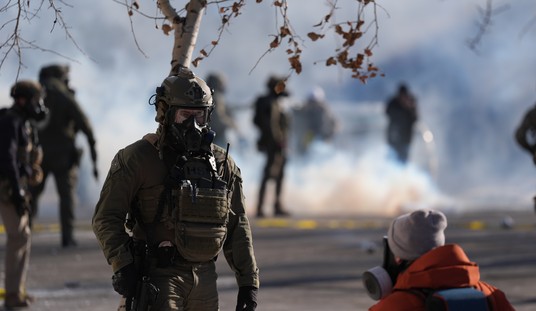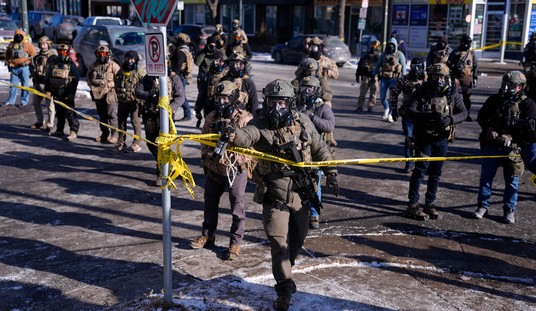On Sunday, an Israeli helicopter fired two missiles at an advance group of Iranian and Hezbollah officers who were believed to be planning a new installation near the old, abandoned Syrian border town of Quneitra. Five Hezbollah and six Iranian officers were reported killed in the strike, most prominent amongst them Jihad Mughniyeh, son of the late, unlamented terrorist leader Imad Mughniyah, whom the Israelis had managed to kill in 2008, and Iranian General Mohammed Ali Allahdadi (both deaths have been confirmed by Hezbollah and Iran). Update: It has now been confirmed that one of the other Hezbollah dead was ‘Ali al-Tabtabani, chief of Hezbollah’s military and intelligence operations outside Lebanon. He was the biggest prize of them all.
The strike has elicited what should have been expected. Iranian National Security Advisor Rear Admiral Ali Shamkhani, confirming the general’s death, threatened, “The resistance will respond by force at an appropriate time and place for the Zionist terror entity’s aggression.” Similarly, the pro-Hezbollah al-Akhbar in Lebanon announced, “Israel will not be able to prevent Hezbollah from sending its forces into Galilee….We shall hit back for the Quneitra strike very soon.”
This latter remark goes far to fuel Israeli fears that Hezbollah has secretly been digging tunnels under the border similar to those discovered last summer during Operation Protective Edge in Gaza. Though the IDF has never publicly confirmed the existence of such tunnels, rumors of their existence are widespread in Israel. Iron Dome missile batteries have been deployed, and a meeting of the Israeli Security Council was called as the country braces for the threatened response.
The northern border region had been relatively calm in recent weeks, following a period of fairly intense fighting in which Syrian troops, together with their Iranian allies and Hezbollah auxiliaries, had been fighting off fierce attempts by the Sunni jihadi rebels to occupy the Syrian side of the Golan border, amidst threats to carry the war into Israel had they succeeded. Until this front had quieted down, the fighting had occasionally been spiced by the odd mortar bomb or stray artillery shell lobbed across the border, generally answered by counter-battery fire from Israeli positions. This attempt to establish a rocket artillery base near Quneitra appears to have been the latest, and most brazen, attempt by Hezbollah to establish their presence along the border, perhaps preparatory to a long-term goal of building up forces for a two-pronged attack into Israel from Lebanon on the one side and Syria on the other. If so, Israeli warnings that Golan is off-limits through diplomatic channels have now been given concrete emphasis.
All this comes as preparations are underway for new elections in Israel. The security crisis cannot help but provide a boost for Binyamin Netanyahu in the run-up to the elections, which polls indicate will be close, with two parties likely to come out on top in March, Likkud on the one hand, and the newly formed Machane Tziyoni (“Zionist Camp”), comprising Yitzchak Herzog’s Labor Party and Tzipi Livni’s Hatnua (“The Movement”), on the other; both of them are expected to win between 20-25 seats each.
In an attempt to increase their numbers in the polls and their gravitas in the eyes of the voters, the new party had offered a “safe seat” to Sha’ul Mofaz, former Israeli chief of staff and defense minister, now head of the Qadima party, which had come into existence as Ariel Sharon’s election vehicle in 2006, presently reduced to two seats and not expected to survive the March elections. Mr. Mofaz has refused, so it appears that the Zionist Camp will have to seek gravitas elsewhere.









Join the conversation as a VIP Member